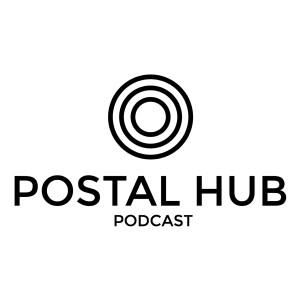
Ep 297: Next generation route optimisation with Kardinal
 2023-03-20
2023-03-20
Download
Right click and do "save link as"
Jonathan Bouaziz, CEO and co-founder at Kardinal, discusses next-generation route optimisation:
- The traditional use case for route optimisation in the delivery sector
- Why doesn't classic route optimisation work any more?
- Inability of some route optimisers to deal with dynamic parcel volumes and volatility
- Impact of B2C parcel volumes on route optimisation
- Maximising productivity and profitability of delivery subcontractors, while maintaining margin
- The battle for talent - keeping the best contractor drivers
- Route optimising and load balancing across territories
- Why is territory optimisation more relevant than classic route optimisation these days?
- Quality of data and impact on route optimisation tools
- Unlocking value in the delivery network - and not just focusing on the last mile
- Poor data can be overcome
- Kardinal's approach to route optimisation
- Assisting carriers negotiate with subcontractors
- Defining good mix between different delivery vehicles (e.g. vans, cargo bikes)
- Helping delivery companies meet emissions targets
- The "always on" approach to route optimisation
- Kardinal's new partnership with Escher
- The strategic imperative of reducing emissions vs the operational realities
- Defining fleet parameters, optimising territories by suitability of vehicle type, and looking towards the prospective delivery fleet
- Helping provide visibility of sustainability and profitability
More Episodes
Ep 170: Letters and parcels pricing
 2019-09-16
2019-09-16
 2019-09-16
2019-09-16
Ep 168: Heavy lifting - FedEx Freight Direct
 2019-09-02
2019-09-02
 2019-09-02
2019-09-02
Ep 167: UPS delivery initiatives
 2019-08-26
2019-08-26
 2019-08-26
2019-08-26
Ep 166: Cross-border trade - UPU and WTO
 2019-08-07
2019-08-07
 2019-08-07
2019-08-07
Ep 162: US postal reform and Q2 results
 2019-07-09
2019-07-09
 2019-07-09
2019-07-09
Ep 158: Fixing the worldwide driver shortage
 2019-06-03
2019-06-03
 2019-06-03
2019-06-03
012345678910111213141516171819
Create your
podcast in
minutes
- Full-featured podcast site
- Unlimited storage and bandwidth
- Comprehensive podcast stats
- Distribute to Apple Podcasts, Spotify, and more
- Make money with your podcast
It is Free
- Privacy Policy
- Cookie Policy
- Terms of Use
- Consent Preferences
- Copyright © 2015-2024 Podbean.com





